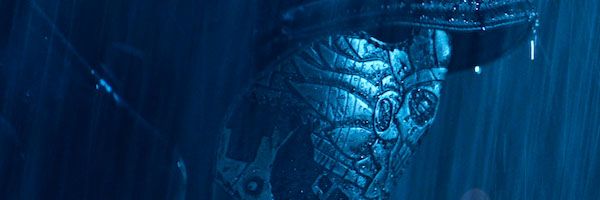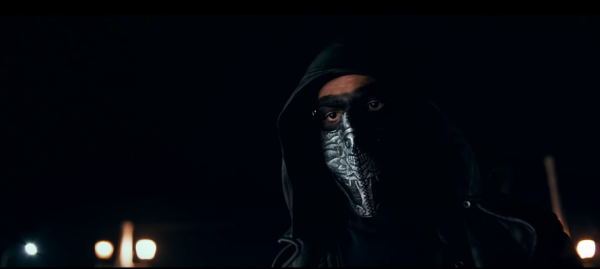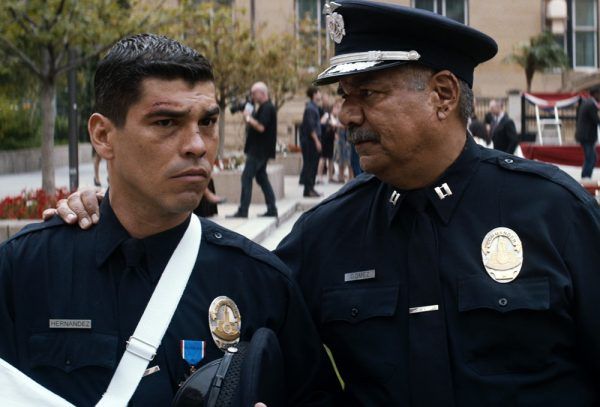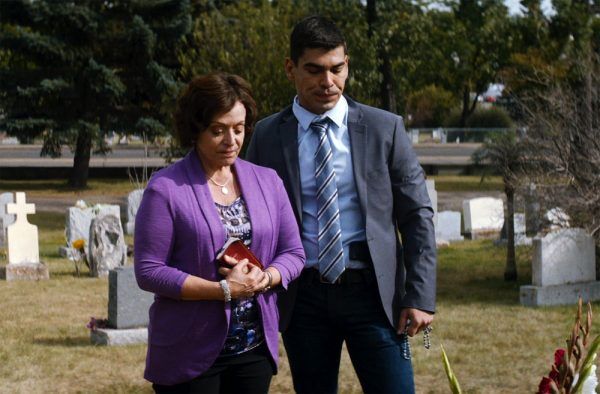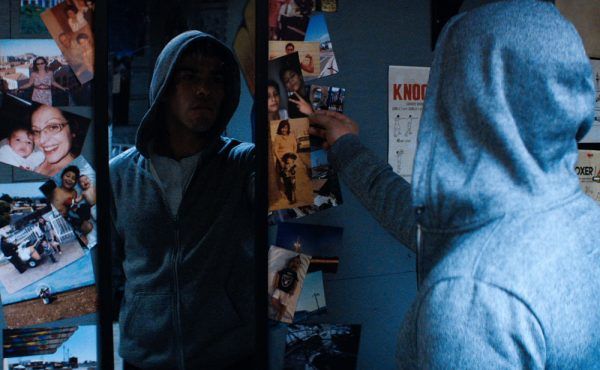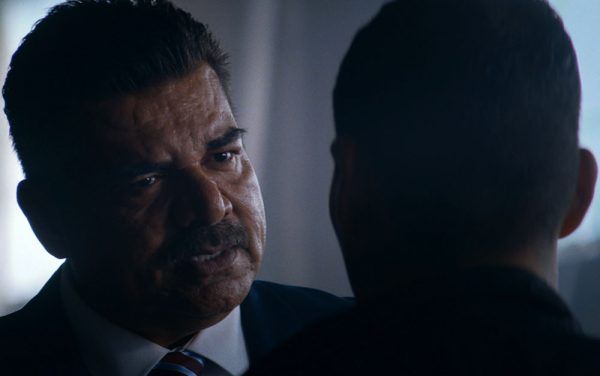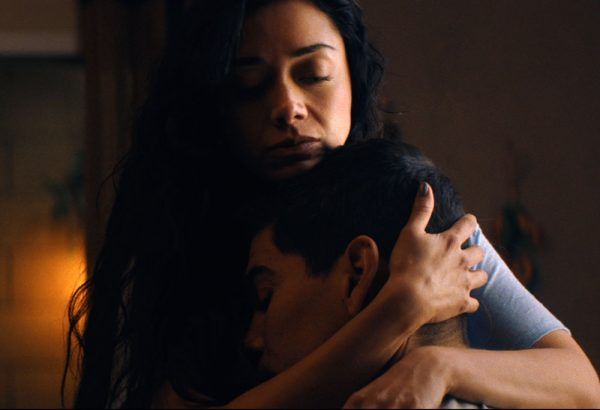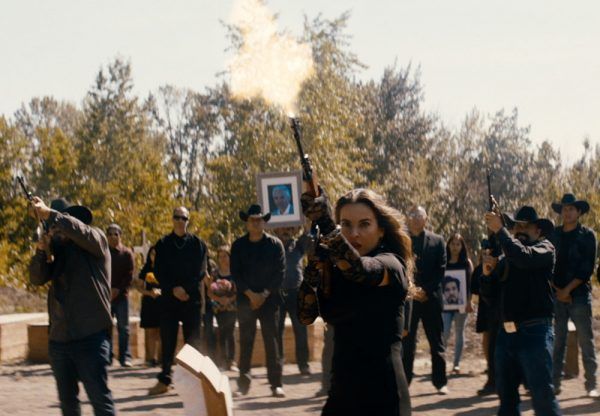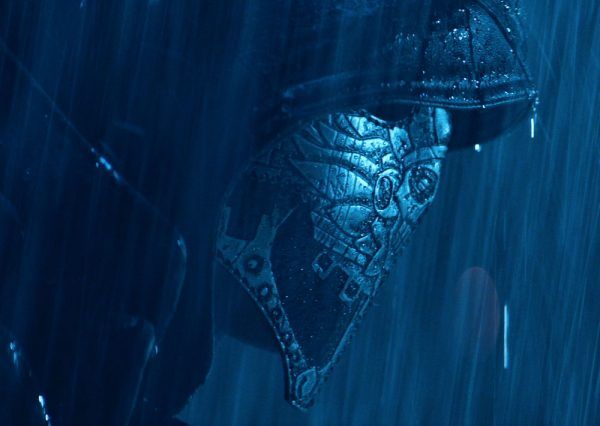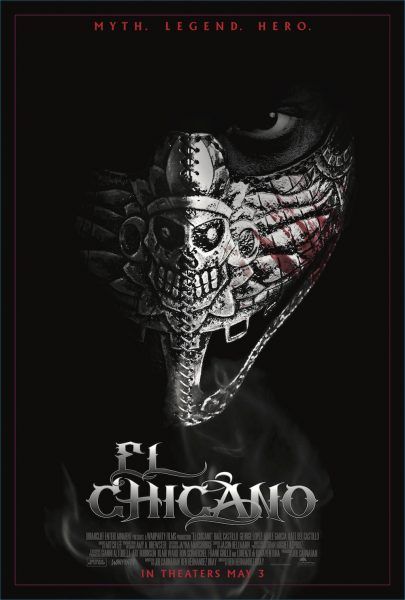From director Ben Hernandez Bray and producer Joe Carnahan (who developed the script together), the indie drama El Chicano is a very different kind of superhero story about a masked street legend who fights the evil that lives in the East Los neighborhood that’s stuck in a turf battle. When LAPD Detective Diego Hernandez (Raúl Castillo) is assigned a career-making case investigating a vicious cartel and learns that his brother’s supposed suicide might have actually been a murder, he becomes torn over the best way to seek justice.
At the film’s Los Angeles press day, Collider got the opportunity to sit down with filmmakers Ben Hernandez Bray and Joe Carnahan to talk about why it’s both about time and the right time for a movie like El Chicano, how it reflects today’s socio-political climate, working from a point of pain in order to tell this story, why it was important to stay focused and get the film made, the bittersweet but beautiful first day on set, casting the film, why it feels like there is still so much story to tell, and finding your own voice as a filmmaker, even if you don’t go to film school.
Collider: This is obviously a bad-ass movie, which I’m sure, is the point. Does it feel like it’s about time for a film like this, or does it feel like the right time for a film like this?
BEN HERNANDEZ BRAY: Both. When we initially started the idea and the writing, Trump wasn’t even in office, at the time. Everything is meant to be, and we have always felt that way, while we were writing the film, and during prepping, shooting and post. It’s the right time because it’s happened the way it was supposed to happen.
JOE CARNAHAN: Since that first X-Men film in 2000, you’re going almost 20 years, with this resurgent superhero genre coming back to light. You still didn’t have a Latino. There’s no Hispanic Avenger. I can’t think of one, off hand. The character in Suicide Squad, played by Jay Hernandez, burns his whole family. And that’s it. So, I think its high time. If not now, then when?
This would be a great film, any time it came out, but it definitely changes the perspective of how you look at it, having it come out now.
CARNAHAN: Yeah, 100%. With everything that’s happening, and the socio-political spectrum that we’re facing, with a very racist, xenophobic, intolerant White House that seems to have an active aggression towards Mexicans and Mexican Americans, and that’s been very demeaning and derogatory toward them, yeah, there’s certainly a little extra sugar in the tank.
HERNANDEZ BRAY: There’s a real narrow mindedness.
You guys knew each other for awhile, before working on this script together. Had you talked about projects before, or was this the first time you had worked together, in this way?
CARNAHAN: Yeah, we did. We had a stuntman project, for years, that we called NDs, or non-descripts.
HERNANDEZ BRAY: In our friendship and working relationship, we have always made each other laugh and have a good time, so we’ve always just thrown out ideas. I’ve had this idea initially, for a long time, unfortunately, because I lost a brother to gang violence, and it just finally came to fruition. It just took a lot of years.
CARNAHAN: There were a lot of years that we had been lamenting the fact that there were no brown faces. There was nobody that was reflecting back at him, his experiences, his family, and the people around him and that he grew up with. We knew that needed to change, so that’s also what sparked this.
When you’re working from a point of pain like that, is it hard to keep going back and tapping that, as you are trying to get the film made?
HERNANDEZ BRAY: It’s really hard.
Now that it’s done and ready to hit theaters, does it feel cathartic?
HERNANDEZ BRAY: It’s very cathartic, and it’s become very surreal, too. It was opening up these wounds, all the time, but trying to stay strong and get through this because I knew there was an important message to tell about this story. Through that process, little by little, I was getting there. Unfortunately, four years ago, my wife and I lost a daughter, which was very devastating, and after I took care of my family, Joe [Carnahan], being my best friend, said, “Listen, I love you bro, and I know how much this story means to you. You dedicated it to your brother, and now it’s time to dedicate it to your daughter. Let’s finish this thing. You have these two guardian angels looking over you, so let’s finish this.” So, after taking care of my family, I found a place, out in New York, in the financial district, and good, bad or ugly, I wrote 185 pages. And then, I came back and got together with Joe. We had a place outside of Palm Springs, and for about four weeks, we hugged it out, we cried, we had tequila shots, and we got this thing down to 125 pages, with his brilliant skill set, as a storyteller and writer, and we knew that we had something really, really special.
When you go on this large of a journey with a movie, at any point, did you wonder whether you should go make something else, in the meantime, or did you just wanted to stay focused on this, until it was done?
HERNANDEZ BRAY: I wanted to say focused on this because I knew that there was nothing like it. There was no one that I identified with, especially with a superhero theme. We don’t see enough Latinos on screen, whether it’s the small screen or big screen, let alone in a positive light. There’s Batman and Spider-Man, and now there’s Black Panther, but as a Latino, we didn’t have anybody that we could identify with, on the screen. It was time. So, I get detoured, a little bit, because I had family to take care of and other jobs to do and work, but it was always part of my mind-set, all the time.
What was it like to walk on set, the first day, and see so many faces like your own?
HERNANDEZ BRAY: Man, I was happy. That was a happy day. My biggest fan was my mother. My mom just loved the script and loved Joe, and was so proud that we had finished this thing. She loved the fact that the Susana character that Marlene Forte plays is based on her. And then, she got ill and suddenly passed away, during the prep of the movie. As crazy as it was, on our first day of shooting, we were standing right in the alleyway, getting ready to do our first shot with Raúl Castillo and Jose Pablo Cantillo, and it was my mother’s birthday, on that first day of shooting. I got so caught up in the prep and everything that was going on, that I didn’t even realize that. All of a sudden, we had these three guardian angels – my brother, my daughter and my mom. It was a heavy moment. It was a beautiful moment, but it was also bittersweet.
CARNAHAN: I don’t know how much I believe in God, per se, but spirituality and the universe is something that I absolutely believe in. I believe in those cross-currents. Those things happen for a reason. I’m a big believer in that.
You have a great cast of actors, both familiar and not so familiar faces. How did you approach casting for this?
HERNANDEZ BRAY: It was through the gaining of knowledge, throughout the years, and of being a fan of and seeking out Latino actors, even as a young kid. I grew up watching George Lopez, and even further with Marco Rodriguez and Sal Lopez, who were theater actors that had done work with Luis Valdez at the Nosotros Theater Company, and who were in Zoot Suit and American Me. So, I was excited to have the opportunity to be in a position to pay homage to them, and to bring them back, so that people don’t forget who they are. It’s a tough business, as an actor. It’s even tougher, if you’re a female or a minority. It’s 3% of the people that get cast.
CARNAHAN: Eighteen percent of the population is Latino, and even less than that 3% percent are in speaking roles. You’re talking about one in four movie ticket purchases are Latino, which is 25% of tickets purchased. For a genre film, it’s close to 50%. If you’re not curating or creating content for that demographic, it seems to me to be an unbelievable oversight, as part of this industry.
And what percent of that 3% of the roles is not something stereotypical?
CARNAHAN: Right?!
HERNANDEZ BRAY: Of course!
CARNAHAN: I think about Sal Lopez, who plays this really great cartel boss, but who also has this grandiose way about him. And then, I remember seeing him at the end of Velvet Buzzsaw, playing this immigrant guy selling a painting. That’s Sal Lopez being the gracious, wonderful, creative guy that he is, saying, “Hey, it’s work,” and not turning his nose up at that stuff. We get the question about stereotypes of gang bangers and cartel bosses, but when you make the decision to have an entirely Latino cast, they’re playing the good guys and the bad guys. It’s about the larger message of the material. And listen, John McClane and Hans Gruber (in Die Hard) are both white guys. One was American and one was Eastern European, but no one ever goes, “Look at these white people.” When we screened El Chicano at the Palm Springs Film Festival, at 4:30 in the afternoon on a Thursday, the packed theater was solidly Caucasian and the median age range was 75. I said, “This is gonna be a rough one,” but they loved it. They gave us a standing ovation, at the end, and they asked about a sequel. That means the movie is transcendent, and bigger than the sum of its parts.
Great storytelling is great storytelling, no matter the genre.
HERNANDEZ BRAY: Exactly!
CARNAHAN: I’m not Italian, nor am I Italian American, but I love The Godfather. When a film like the remake of Miss Bala comes out, nothing against the guys who remade it, but the original was quite good, so it feeds into what studios think Latinos want to see. If El Chicano becomes a minor flash point, that allows these other movies with brown faces and Latino actors to move forward – and they don’t have to be superhero films – that would be fantastic. That would be really wonderful.
Because it seems like there’s so much more story to tell in this world, beyond a sequel, have you thought about the possibility of doing something like a TV series or comic book?
HERNANDEZ BRAY: Yes, we have. We’ve thought about an illustrated novel and a comic book, and we’ve had other ideas, like a television show.
CARNAHAN: Its core is the idea of identity, who we are, who he is, and what he represents. His superpower is his heart, his resiliency, his resolve, and his community, his grandparents, and his mother, putting food on the table, working hard, being diligent, and being unstoppable and unbeatable, in that way, in the purest way. That’s a hell of a superpower to have. It’s not some, “I fell into a well and there was magic troll, and he gave me the power of flight.” There’s just a lot more real estate to uncover here.
Ben, you’ve done a bit of episodic directing in the Berlanti DC Universe on The CW, with Arrow, Supergirl and Legends of Tomorrow.
HERNANDEZ BRAY: Yeah, I’ve been very fortunate. It’s been a blast. It’s been great, and a fun ride, working on those shows. I branched out to do Siren, with Rena Owen, who is one of my heroes, from Once Were Warriors. It’s been great, learning from [Joe] while directing my first episodic television series, for State of Affairs with Katie Heigl. If you can do TV, you can do anything. You get seven to eight days of prep, and then you get seven to eight days to shoot, and you might have a splinter unit, after your eighth day. You’ve gotta run and gun. And that’s what we were doing on this film, so it definitely got me ready.
When you’re someone who doesn’t go to film school, what gets you to a point where you’re confident enough to say, “Okay, I’m a director, and I’ve got this,” especially with everyone looking to you for all of the answers?
HERNANDEZ BRAY: I don’t think you ever do. You’re always learning. There are so many answers to so many questions, all the time. I’ve always used the work ethic that I’ve had, being a young Latin kid who was taught by my mother and grandmother, of just always learning. Not having a background in that schooling, for me, it was the school of hard knocks. I’ve had mentors, like Joe and like David O. Russell, in my life, and I’ve learned by watching, doing, and trusting my instinct. That’s the best school in the fucking world.
CARNAHAN: I was too dumb to get into film school. That’s the truth. My grades sucked. I’m not any smarter now, but I make up the difference with sweat. That’s what you have to do.
HERNANDEZ BRAY: You’re just constantly learning. The moment that you actually look at yourself in the mirror and go, “Yeah, I’m there,” you’re in trouble.
CARNAHAN: Sometimes I’m under great duress. I’ve been doing this now for 25 years, and Boss Level was maybe the first time where I’ve felt like, “Oh, I’m a director.” I had to do the almost impossible in 27 days. It worked, and it turned out to be what I think is my best film, which is crazy because I would have bet the house against it. There’s a noticeable difference in where I was, but that could disappear. That line may be erased, and it could simply be duress and panic that got me into that state of being. That time, I was elevated, but I might not be able to reach that again. I don’t know if it will ever be like that again. Maybe they’ll have to only give me 25 days, next time.
El Chicano is out in theaters on May 3rd.

